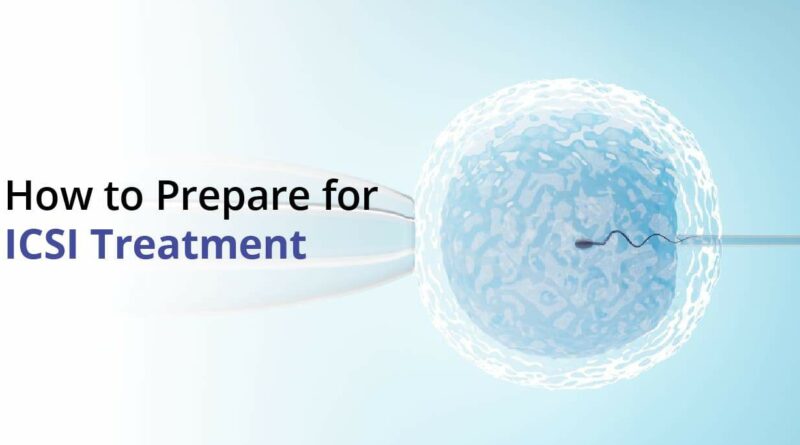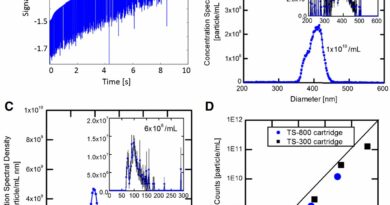What Are the Intricacies Involved in an ICSI Treatment
In the world of assisted reproductive technology (ART), ICSI (Intracytoplasmic Sperm Injection) is a revolutionary treatment that has helped countless couples experiencing infertility. ICSI Procedue is a specialized technique used in IVF (In vitro fertilization) to address male infertility issues and improve the chances of conception. While IVF involves fertilizing an egg outside the body with sperm, ICSI takes this a step further by injecting a single sperm directly into the egg to facilitate fertilization.
What Is ICSI Treatment?
ICSI is a process where a single sperm is injected directly into an egg during an IVF cycle. Unlike traditional IVF, where the sperm and egg are left to fertilize naturally in the laboratory, ICSI bypasses the natural fertilization process by manually introducing the sperm into the egg. This technique is especially beneficial for men with low sperm count, poor sperm motility, or those who have sperm that is unable to penetrate the egg on its own.
ICSI is typically used when there are significant male infertility factors, such as:
- Low sperm count
- Poor sperm motility
- Abnormal sperm shape
- Blockages in the male reproductive tract
- Previous failed IVF attempts
In addition, ICSI may be recommended when sperm is retrieved directly from the testicles through surgical methods, such as TESE (Testicular Sperm Extraction) or MESA (Microsurgical Epididymal Sperm Aspiration).
The Process of ICSI Treatment
The ICSI procedure is similar to traditional IVF, but with a few key differences:
- Ovarian Stimulation: The female partner undergoes ovarian stimulation with hormone injections to produce multiple eggs. This is done to increase the chances of successful fertilization since only a few eggs are retrieved during each cycle.
- Egg Retrieval: Once the eggs are mature, they are retrieved from the ovaries through a minor surgical procedure known as aspiration. This is typically done under sedation or anesthesia.
- Sperm Collection: Sperm is collected from the male partner through masturbation. If natural sperm collection is not possible, sperm may be surgically retrieved from the testicles or epididymis.
- ICSI Procedure: In the laboratory, a sperm is carefully selected under a microscope. Using a fine needle, the embryologist injects the sperm directly into the egg’s cytoplasm. The sperm is carefully positioned within the egg to increase the likelihood of successful fertilization.
- Fertilization Check: The following day, the embryologist checks to see if the egg has been successfully fertilized. If fertilization is successful, the embryo is monitored for its development over the next few days.
- Embryo Transfer: Once the embryos reach the appropriate stage of development (usually day 3 or 5), the best quality embryos are selected for transfer into the woman’s uterus. The number of embryos transferred depends on various factors, including the woman’s age and the quality of the embryos.
- Pregnancy Test: After a few weeks, a pregnancy test is performed to determine if the procedure was successful.
The Intricacies Involved in an ICSI Treatment
While ICSI offers a solution to male infertility, there are intricacies involved in the treatment that require careful consideration and understanding:
- Sperm Selection: One of the key steps in ICSI is selecting the right sperm for injection. The sperm must be viable, meaning it must have the ability to fertilize an egg. In some cases, even if the sperm count is low, a sperm can still be chosen for ICSI if it shows motility and morphology that are acceptable.
- Microscopic Precision: The process of injecting a sperm directly into an egg requires extreme precision. Embryologists use a high-powered microscope to pick up the sperm and inject it into the egg. This step demands skill and experience, as improper handling of the sperm or egg can lead to fertilization failure.
- Embryo Quality: While ICSI is highly effective in achieving fertilization, the success of the treatment also depends on the quality of the embryos. The health of the woman’s eggs and the genetic quality of the sperm play a crucial role in determining whether the embryos will successfully implant in the uterus.
- Success Rate: ICSI offers high success rates for couples dealing with male infertility, but the success rate is also influenced by factors such as the woman’s age, ovarian reserve, and overall reproductive health. It’s important to note that ICSI is not a guarantee of pregnancy, and multiple attempts may be required for success.
- Genetic Concerns: Although ICSI significantly improves the chances of fertilization, some studies have raised concerns about the potential genetic risks associated with the procedure. The manual manipulation of sperm raises questions about the long-term effects on the child, but current research suggests that the risks are minimal. It’s crucial for couples considering ICSI to consult with their infertility specialist in Lahore to understand these concerns in detail.
Conclusion:
ICSI treatment is a groundbreaking fertility solution for couples struggling with male infertility. By directly injecting a single sperm into an egg, ICSI overcomes many of the challenges posed by male fertility issues, offering hope to couples who might otherwise be unable to conceive.
While the treatment offers high success rates, it does come with certain intricacies, such as the need for expert sperm selection, precise microscopic techniques, and consideration of factors like embryo quality and genetic risks. IVF with ICSI can be life-changing for many, but it is essential to consult with an experienced fertility specialist to fully understand the procedure and its potential outcomes.
For More Details: https://acimc.org/ivf-lahore/




